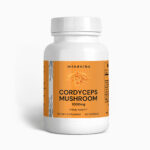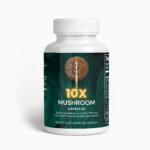
“Dealing with Digestive Disorders: How Supplements Can Aid Gut Health”
Having digestive problems can be a major inconvenience and even impact your quality of life. Conditions such as gas, bloating, constipation, and diarrhea can become a daily struggle that affects your mood and energy levels. Fortunately, there are a variety of dietary supplements on the market that can aid in promoting gut health and reducing the likelihood of experiencing these symptoms. Not only can supplements improve digestion and absorption of nutrients, but they can also increase the presence of beneficial gut bacteria, which can support overall health. If you’re looking for effective ways to deal with digestive disorders, read on to learn more about how supplements can help you achieve optimal gut health.
1. Introducing the Impact of Digestive Disorders on Our Overall Health
It is no secret that digestive disorders can have a significant impact on our overall health. These disorders can range from mild discomfort to severe pain and can negatively affect our physical and emotional well-being. The digestive system plays a critical role in our body, as it is responsible for breaking down food into nutrients and eliminating waste. Hence, any disruption in this process can cause a domino effect on the rest of our body.
A digestive disorder can occur due to various reasons such as genetics, diet, and lifestyle. Here are some of the most common digestive disorders:
- Acid Reflux
- Ulcers
- Inflammatory bowel disease (IBD)
- Irritable bowel syndrome (IBS)
- Constipation
- Diarrhea
If left untreated, these disorders can result in severe complications, including malnutrition, weight gain or loss, dehydration, and even cancer. It is crucial to identify the symptoms of digestive disorders early and seek medical attention to avoid any long-term consequences.
In conclusion, the impact of digestive disorders on our overall health cannot be overlooked. These disorders can affect our physical and mental well-being and can lead to significant health problems if left untreated. Therefore, it is essential to take care of our digestive system by maintaining a healthy diet, staying active, and seeking medical attention if any symptoms arise.

2. Understanding the Role of Supplements in Promoting Gut Health
Supplements can play an important role in supporting your gut health, especially when you’re looking to address digestive issues. But, it’s important to understand the different types of supplements available and their specific benefits to make an informed decision about what’s right for your needs.
In general, gut health supplements can be divided into four broad categories: prebiotics, probiotics, digestive enzymes, and fiber supplements. Each of them works in a unique way to promote digestive health and improve nutrient absorption. Prebiotics are the non-digestible fibers that feed the good bacteria in your gut, while probiotics are the live bacteria that colonize your gut and help keep the bad bacteria at bay. Digestive enzymes are the proteins that help break down the food you eat, making it easier to digest and absorb. Fiber supplements work by adding bulk to your stool and promoting regularity.
If you’re looking to improve your gut health, it’s important to choose a supplement that matches your specific needs. For example, if you’re struggling with constipation, a fiber supplement can be a good choice. If you’re dealing with bloating and gas, a probiotic supplement might be more effective. And if you have trouble digesting certain foods, like lactose or gluten, a digestive enzyme supplement can help you avoid uncomfortable symptoms.
- If you’re considering taking a gut health supplement, here are some tips to keep in mind:
- Always choose high-quality supplements from reputable brands.
- Read the labels carefully and look for ingredients that match your specific needs.
- Start with a low dosage and gradually increase it to avoid side effects.
- Give the supplement time to work – it can take several weeks to see improvements.
Ultimately, the right supplement can make a real difference in your digestive health and overall wellbeing. With the right information and a smart approach, you can choose the supplement that’s right for you and enjoy the benefits of better gut health.

3. The Benefits of Probiotics and Prebiotics for Digestive Health
Probiotics and prebiotics are crucial for maintaining a healthy gut. Both types of gut-friendly bacteria work in conjunction to promote a robust and balanced gut microbiome. If you’re looking to boost your digestive health, incorporating probiotics and prebiotics into your diet is a smart move. Here’s why.
Firstly, probiotics contain beneficial bacteria that help to establish a healthy gut flora. These microorganisms improve digestion, aid nutrient absorption, and reduce inflammation in the gut. Research has linked probiotic intake to the prevention of digestive issues such as bloating, constipation, and diarrhea. They’ve even been shown to help alleviate symptoms of inflammatory bowel disease (IBD) and irritable bowel syndrome (IBS).
Secondly, prebiotics act as food for probiotics. They’re nondigestible fiber compounds that pass through the digestive system to the colon, where they are fermented by gut bacteria. This process helps to increase the population of beneficial bacteria in the gut, leading to a better-balanced microbiome. Prebiotics have even been shown to help lower levels of harmful gut bacteria, reduce inflammation, and enhance mineral absorption.
Lastly, consuming a combination of probiotics and prebiotics is shown to provide greater health benefits than consuming either on their own. A diet that’s high in prebiotic-containing foods like garlic, onion, bananas, and asparagus, along with probiotic-rich foods like yogurt, kefir, pickles, and sauerkraut can help to boost the population of beneficial gut bacteria. This can lead to better digestion, improved immune function, and even a more balanced mood.
In conclusion, probiotics and prebiotics offer many benefits for digestive health. In combination, they work together to promote a healthy balance of gut bacteria, leading to improved digestion, nutrient absorption, and reduced inflammation. Make sure to incorporate probiotic-rich and prebiotic-containing foods into your diet to achieve optimal gut health.
4. Digestive Enzymes: Essential Supplements for Digestive Disorders
Digestive enzymes are a vital part of our overall digestive system. They are responsible for breaking down the food we eat into much smaller particles that can be easily absorbed by the small intestine. The pancreas, liver, and small intestine produce digestive enzymes naturally, but many people may not have enough of these enzymes to effectively break down their food, leading to digestive disorders. That’s why it’s essential to consider taking digestive enzymes as a supplement to improve your overall digestive health.
If you often experience digestive discomfort, bloating, or gas after eating, it could be a sign that your body is not producing enough digestive enzymes. Many factors can contribute to this, including aging, stress, and a poor diet. Supplementing with digestive enzymes can help with better digestion, absorption of nutrients, and reducing symptoms of digestive disorders.
There are various types of digestive enzymes available, and each one has a specific role in breaking down different types of foods. For example, protease enzymes break down proteins, lipase enzymes break down fats, and amylase enzymes break down carbohydrates. Choosing the right digestive enzyme supplement for your specific needs is essential and can significantly improve your digestion and overall health.
To sum up, if you have been dealing with digestive issues and other digestive health concerns, adding digestive enzyme supplements to your diet might be a game-changer for you. It can not only lead to better digestion but also improve the absorption of nutrients, reduce inflammation, and ultimately provide relief from digestive symptoms. Give digestive enzymes a try and notice the positive impact they will have on your digestive health and overall well-being.
5. How Fiber Supplements Can Improve Gut Health and Prevent Digestive Disorders
Fiber is an essential nutrient that promotes a healthy gut by absorbing water and regulating bowel movements. However, many people don’t consume enough fiber in their diets, which can lead to digestive disorders such as constipation, bloating, and diarrhea. That’s where fiber supplements come in handy!
Taking fiber supplements is an easy and convenient way to increase your fiber intake and support your gut health. These supplements are available in various forms such as powder, pills, or capsules and can be taken with meals or as a standalone supplement. The benefits of fiber supplements are numerous, and they’ve been shown to improve digestion, decrease inflammation, and even promote weight loss.
If you’re looking to prevent digestive disorders and maintain a healthy gut, fiber supplements are a great way to get the fiber your body needs. Unlike some other supplements, they’re affordable and easy to find in most stores. Besides, fiber supplements are safe and well-tolerated, and they don’t have any serious side effects. With regular use, fiber supplements can help you maintain a healthy weight, control blood sugar levels, and lower your risk of heart disease.
In conclusion, fiber supplements are a great option for anyone looking to improve their gut health and prevent digestive disorders. With their numerous benefits and ease of use, they’re an affordable and safe way to increase your fiber intake and support a healthy gut. So, if you’re not getting enough fiber from your diet, consider adding fiber supplements to your daily routine today!
6. The Importance of Antioxidant Supplements in Fighting Inflammation in the Gut
Inflammation in the gut can be caused by a variety of factors, from stress to a poor diet. However, one way to fight inflammation is by incorporating antioxidant supplements into your daily routine. Antioxidants can help reduce oxidative stress and inflammation in the body, which can lead to a healthier gut.
One of the most popular antioxidant supplements is probiotics. Probiotics are live bacteria and yeasts that are naturally found in the body and can help balance the gut microbiome. Adding probiotics to your diet can help reduce inflammation and improve overall gut health.
Another powerful antioxidant supplement is omega-3 fatty acids. Omega-3s are essential fats that cannot be produced by the body and must be obtained from the diet or supplements. Studies have shown that omega-3s can help reduce inflammation and improve gut health by reducing levels of pro-inflammatory cytokines. Incorporating omega-3 supplements into your diet can help reduce inflammation and improve overall gut health.
Overall, incorporating antioxidant supplements into your diet can help reduce inflammation and improve gut health. Probiotics and omega-3 supplements are just a few examples of the many beneficial supplements available. By reducing inflammation and supporting overall gut health, antioxidant supplements can help improve your quality of life and overall well-being.
7. Finding the Right Supplements to Combat Digestive Disorders: Tips and Suggestions
If you’re struggling with digestive disorders, then finding the right supplements can help you immensely. With the help of supplements, you can maintain good gut health and digestion. Here are some tips on how to choose the right supplements for your digestive issues:
- Probiotics: Probiotics are good bacteria that live in the gut and aid in digestion. Including probiotics in your diet can help to maintain the balance of gut bacteria. Make sure that you choose a supplement with a high number of live bacteria cultures like lactobacillus or bifidobacterium.
- Digestive Enzymes: Digestive enzymes help to break down food so that it can be easily absorbed by the body. If you’re suffering from digestive disorders, then a digestive enzyme supplement can help you to improve your digestion. Choose a supplement with a blend of enzymes like amylase, protease, lipase, and lactase.
- Fiber: Fiber is an essential nutrient that helps to keep your digestive system healthy. You can choose a fiber supplement like psyllium to improve your digestion. Psyllium is a soluble fiber that absorbs water and forms a gel-like substance, which softens and bulks up stool, making it easier to pass.
In conclusion, supplements can be a great way to combat digestive disorders, but it’s important to choose the right ones. Make sure that you consult with your doctor or a nutritionist before taking any supplement. Choosing the right supplement and adopting a healthy lifestyle can help you to improve your digestive health and lead a better life.
By adding targeted gut health supplements to your diet, you can naturally support healthier digestive wellness. With a better understanding of how digestive disorders may be affecting your body and which supplements to add, you will be able to take the steps necessary to promote digestive health. Taking extra time to evaluate your wellness and adjusting your diet accordingly could mean improved quality of life and well-being.

























